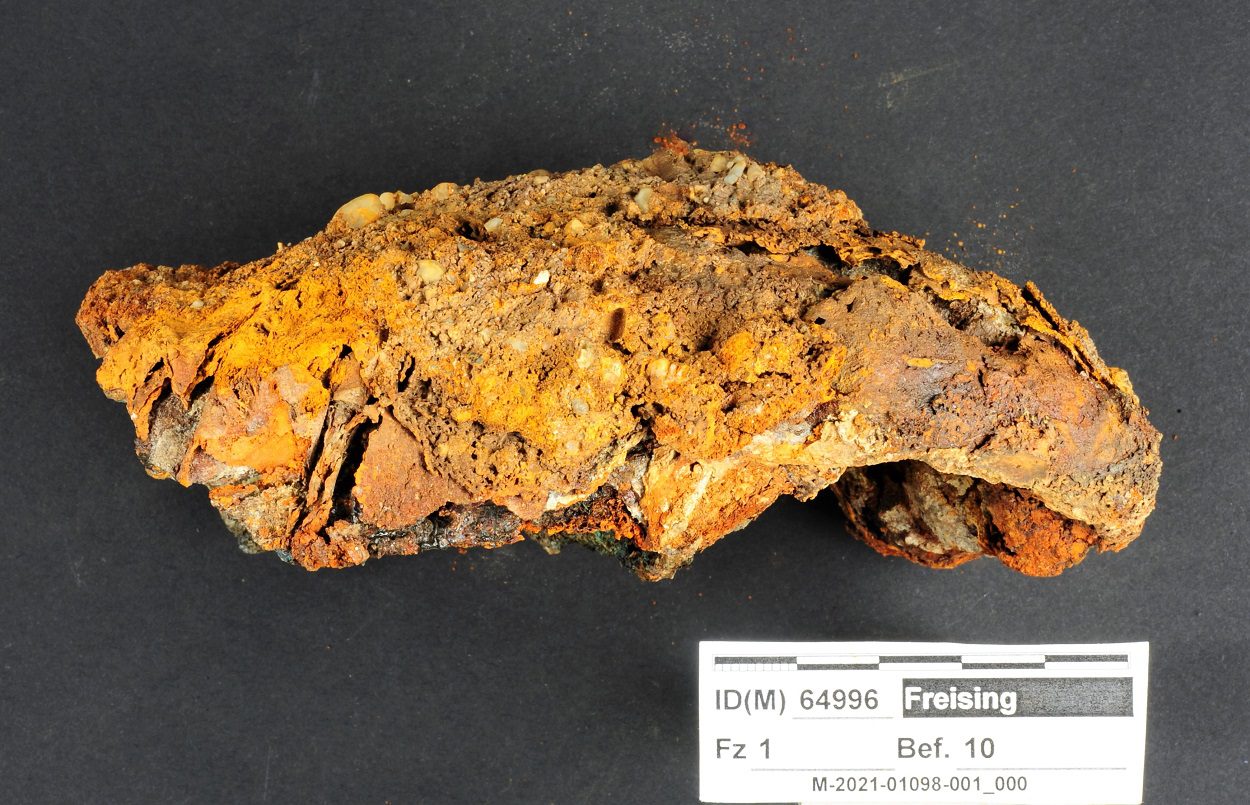According to a press announcement by the Bavarian State Office for Monument Preservation, a 15th century burial in Freising, Germany, has been unearthed containing a skeleton with a prosthetic hand.
The discovery was made during excavation works for a new pipeline near the Church of St George, revealing the remains of the hand in a sophisticated construction made of iron and non-ferrous metal: an iron hand prosthesis from the Middle Ages.
An anthropological study and radiocarbon dating indicates that the individual was 30 to 50 years old when they died, sometime between 1450 and 1620, a period when European doctors started to make great strides in the development of prosthetics for injured soldiers.
Many military conflicts in Central Europe occurred during the late Middle Ages and the early modern period. As a bishop’s see and later an imperial-free corporate state, Freising gained great influence in the Middle Ages. Nevertheless, the city was the scene of military offensives on several occasions, including the Thirty Years’ War, one of the longest and most destructive conflicts in European history.

There are approximately 50 known prosthetic devices from the late Middle Ages and early modern period in Central Europe. These prosthetics vary, encompassing both basic, non-articulated models, and more complex ones with mechanical components.
Speaking on the discovery, Dr. Walter Irlinger, head of the conservation department at the Bavarian State Office for Monument Preservation, said: “The hollow hand prosthesis on the left hand added four fingers. The index, middle, ring and little fingers are individually formed from sheet metal and are immovable. The finger replicas lie parallel to each other, slightly curved. The prosthesis was probably tied to the stump of the hand with straps.”
Bavarian State Office for Monument Preservation
Header Image Credit : Bavarian State Office for Monument Preservation







